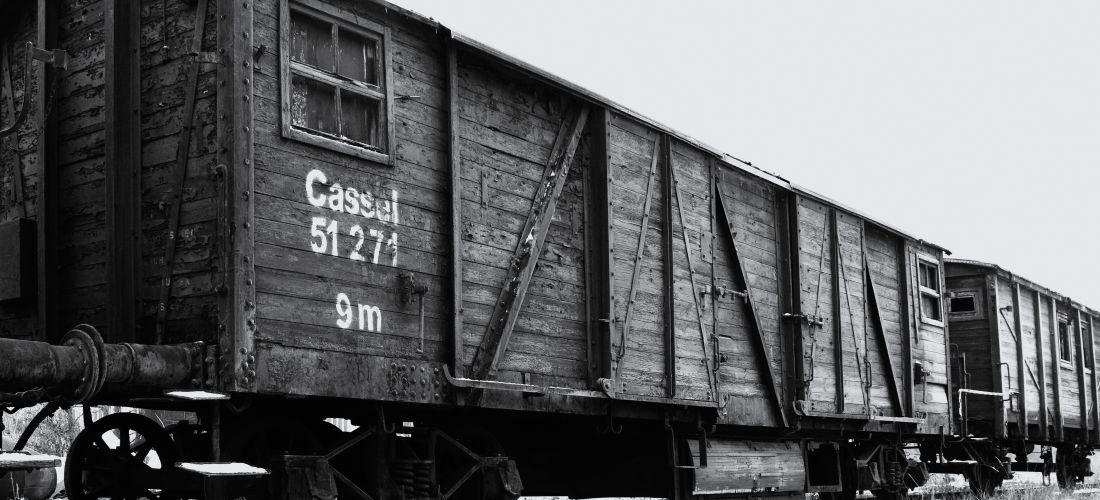This year marks the 80th anniversary of the liberation of Auschwitz-Birkenau, the most infamous of the Nazi concentration and extermination camps. As we mark this historic event, it's important to reflect on its lasting impact, not just on the survivors and their families, but on all of humanity. It serves as a striking reminder of the atrocities that can arise when basic human rights are dismissed, and voices are silenced.
As an advocacy organisation, People First is committed to ensuring that the voices of the most marginalised are heard, and their rights are upheld. The lessons of Auschwitz reinforce why this mission remains vital for all of us.
The Holocaust was one of the darkest chapters in human history, a genocide that saw the persecution and murder of six million Jews, alongside other targeted groups, including disabled people, people with a learning disability, autistic people, the Romanai people, LGBTQ+ individuals, and political protesters. It was an era of dehumanisation, where people's basic dignity was taken away, and their value reduced to nothing in the eyes of the Nazi government. The sheer scale of suffering is unimaginable, but the survivors stories, and those who liberated these camps and saw the horrors firsthand, help to ensure that these events are never forgotten.
Survivors of the Holocaust, such as Elie Wiesel, have become powerful voices for remembrance, human rights, and the real dangers of silence and indifference. Wiesel, who survived Auschwitz, dedicated his life to ensuring that the horrors of the Holocaust would never be never forgotten. His words remain deeply relevant, particularly his famous speech, 'The Perils of Indifference', delivered at the White House in 1999, Wiesel asked;
"What is indifference? ... the word means 'no difference.' A strange and unnatural state in which the lines blur between light and darkness, dusk and dawn, crime and punishment, cruelty and compassion, good and evil."
Wiesel's message strikes at the heart of what it means to advocate for those who cannot advocate for themselves. Indifference, he warned, is not just an act of acceptance, it is a form of involvement. When we choose not to care, when we look away from suffering or injustice, we allow it to continue.
"Indifference, after all, is more dangerous than anger and hatred... And, therefore, indifference is always the friend of the enemy, for it benefits the aggressor-never the victim, who pain is magnified when he or she feels forgotten."
This holds deep meaning for our work at People First. We advocate for individuals who are often overlooked by society- people with a learning disability, autistic people, and those with other vulnerabilities who may face barriers to there rights of inclusion, rights and independence. To be indifferent to their struggles is to allow discrimination, exclusion, and neglect to continue. Our mission is to ensure that these people are heard, that their rights are protected and respected, and that their dignity is upheld.
Eighty years after the liberation of Auschwitz, the lessons of the Holocaust are as vital as ever. The survivors of this horrific period of human history, including people like Elie Wiesel, became powerful advocates for justice, equality, and the protection of human rights. Their lived experiences taught the world the consequences of hatred and indifference, but as time passes and fewer survivors remain to tell their stories, it becomes all our responsibility to continue to bear witness and learn the lessons of history. This is what Wiesel reminded us.
"The opposite of love is not hate, it's indifference,"
Every act of advocacy is an act of love, and an act of standing up against indifference. It's speaking out for someone's right to live independently, ensuring they have access to the services they need. It's challenging systemic discrimination. It's standing up and saying "we refuse to be indifferent." We choose, instead, to care deeply and to act.
The liberation of Auschwitz was a victory over tyranny, but it also marked the first chapter of an ongoing struggle, that still is applicable today as it was then, to ensure that 'never again' becomes a reality for all people across the world. Advocacy is a part of this struggle: a means of giving a voice to those whose voices are too often silenced or ignored. When we advocate, we fight against the indifference that allows injustice to continue and grow.
So as we reflect on this solemn anniversary, it's crucial to remember the importance of standing up for the vulnerable and marginalised, just as the world once stood up for those liberated from the horrors of Auschwitz, Bergen-Belsen and the many many other concentration and death camps. We honour the memory of those who suffered and were murdered by continuing to battle for a just and inclusive society- one where no one is left behind or forgotten.
Wiesel closed his speech with a powerful reminder. One that is still relevant 26 years later;
"Together we walk towards the new millennium, carried by profound fear and extraordinary hope."
Hope. At People First, we carry this beacon, this hope with us. We believe that through advocacy, compassion, and the refusal to accept indifference, we can create a future where every person's voice is heard, where every individual is treated with dignity, respect and kindness.
